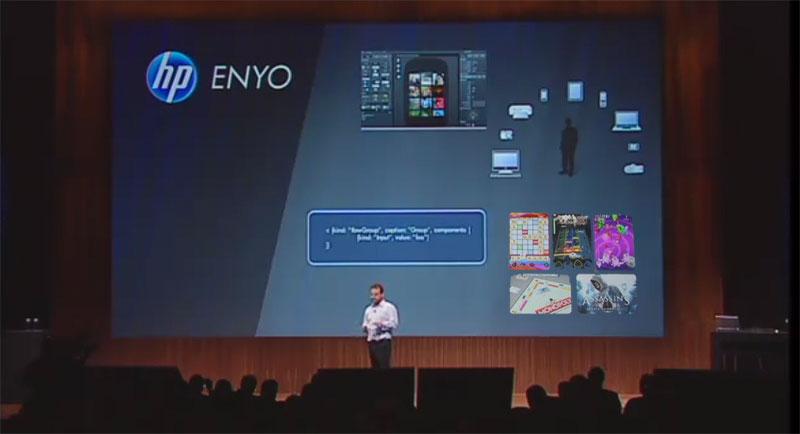HP to keep webOS, make available as an undefined open source project
"HP plans to continue to be active in the development and support of webOS," the company announced in a press release moments ago. "By combining the innovative webOS platform with the development power of the open source community, there is the opportunity to significantly improve applications and web services for the next generation of devices."
Bizarrely, HP didn't specify how it would be sharing webOS, whether as a GPL-style "free to use but don't customize it for use in closed projects" license like Linux, or under a "use it anyway you like" license along the lines of the type of BSD/MIT open source licenses favored by Apple, or under a far more restrictive "shared source" type of license favored by Microsoft.
The announcement of such a licensing decision would have far reaching implications for those who might be interested in using the platform or portions of its technologies. However, such a decision would also depend upon how HP plans to mange its vast portfolio of Palm patents.
Whitman's punt
HP's president and chief executive Meg Whitman instead offered the words, “by contributing this innovation, HP unleashes the creativity of the open source community to advance a new generation of applications and devices.â€
Despite its status as a multibillion dollar global corporation, HP was unable to "unleash creativity" or "advance a new generation of applications and devices" on its own over the past year.
The company was widely expected to be a perfect fit for Palm's webOS, given that it is the biggest PC maker worldwide and, in theory, capable of funding expensive development projects through to completion, a problem Palm itself lacked the funds to accomplish.
Instead, HP fired its chief executive behind the $1.2 billion acquisition of Palm and its board hired a new chief executive who lacked experience in running a hardware company, and who decided to convert HP into the kind of enterprise software firm he had run before.
Part of that plan involved spinning off HP's Personal Systems Group, which built all of its computers and was working on new webOS smartphones and tablets. After his ouster, board member Whitman took over as chief executive and announced after several weeks that HP would be retaining its PSG but would continue to deliberate on the fate of webOS, suggesting that there were lots of companies interested in licensing the mobile platform.
No buyer appears for Palm
After months of thinking, HP has announced non-specific plans to make webOS an open source project of some kind, noting that it will "engage the open source community to help define the charter of the open source project."
The project is only defined as involving continued "open development of the webOS platform," where "HP will be an active participant and investor in the project," and efforts will be made to set up "good, transparent and inclusive governance to avoid fragmentation" where "software will be provided as a pure open source project."
HP also said it would contribute its ENYO application framework for webOS to the community in "the near future." Internally, ENYO, which is designed to enable flexible, fast development of web applications, was said to be employed in testing on Apple's iPad, where it ran twice as fast as HP's own hardware, largely because of Apple's more sophisticated JavaScript implementation.
Offering your dog food as FOSS instead of eating it
With the remains of Palm's webOS dripping with mobile-relevant patents and functional technology, HP appears more interested in retaining control of the project and its intellectual property than in monetizing its acquired platform directly, either though a risky licensing program along the lines of Windows Phone 7 (difficult to do in a market dominated by free Android software) or an outright sale of Palm that might have endangered HP's ability to use the webOS software itself.
One report indicated that HP was trying to sell off its Palm assets while "demanding that potential buyers license webOS back to it on the cheap for use in printers."
Whitman seemed to make it clear that HP was abandoning any notion of building new webOS tablets of its own however, instead announcing that HP would be releasing tablets based on Windows 8 next year, following the company's failed Slate PC last year running Windows 7.
[Update: Whitman has announced HP will eventually return to building webOS-powered tablets by 2013, after introducing Windows 8 tablets next year.]
 Daniel Eran Dilger
Daniel Eran Dilger











 David Schloss
David Schloss
 Marko Zivkovic
Marko Zivkovic
 Malcolm Owen
Malcolm Owen

 William Gallagher
William Gallagher
 Mike Wuerthele
Mike Wuerthele
 Christine McKee
Christine McKee








